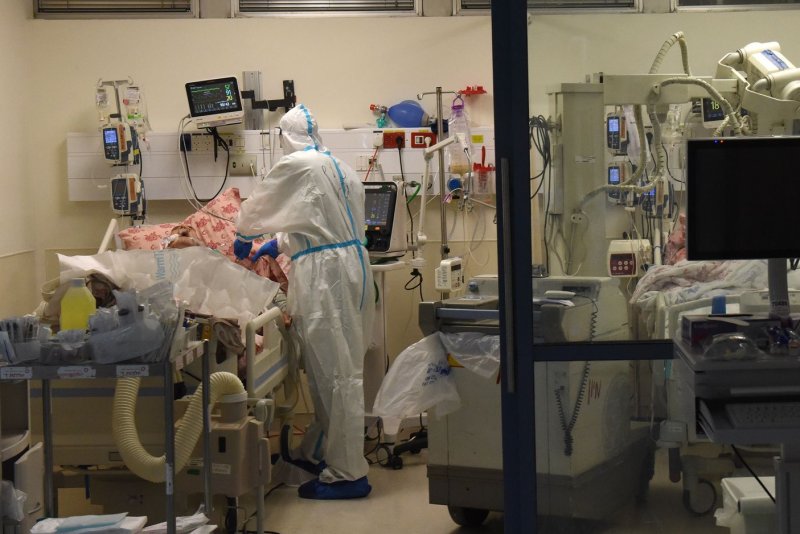Obesity has been found to be a complicating factor in long-term health outcomes following COVID-19 recovery. File Photo by Debbie Hill/UPI |
License Photo
June 3 (UPI) -- COVID-19 patients with obesity are more likely to deal with long-term symptoms of the disease months after recovering from the coronavirus, according to a study published Thursday in the journal Diabetes, Obesity and Metabolism.
These patients were at higher risk of dealing with cardiovascular issues, blood clots, lung problems, weakened immune system and chronic inflammation several months after the disease has passed, according to researchers.
"To our knowledge, this current study for the first time suggests that patients with moderate to severe obesity are at a greater risk of developing long-term complications of COVID-19 beyond the acute phase," lead study author Dr. Ali Aminian said in a press release.
Aminian is director of the Bariatric and Metabolic Institute at the Cleveland Clinic in Cleveland.
The study focused on 2,839 patients over a ten month follow up period, with researchers finding that 44 percent of obese patients had follow up appointments at the hospital for secondary illnesses caused by COVID-19.
Findings also indicate obese COVID-19 patients require more testing when hospitalized after the virus, including for mental health problems, not just lung and heart problems for which the disease is well known.
"The observations of this study can possibly be explained by the underlying mechanisms at work in patients who have obesity, such as hyper-inflammation, immune dysfunction, and comorbidities," study co-investigator Dr. Bartolome Burguera said in the release.
"Those conditions can lead to poor outcomes in the acute phase of COVID-19 in patients with obesity and could possibly lead to an increased risk of long-term complications of COVID-19 in this patient population," said Burguera, chair of the Endocrinology and Metabolism Institute at Cleveland Clinic.
In March, the CDC said severely obese adults had a 60 percent higher fatality rate from COVID-19, likely due to existing inflammation in affected organs.
Another group of researchers found obese people were hospitalized at at a three times higher rate than people without obesity rate and recorded a similar increase in death rate.
Obesity has also been found to cause complications for children. Children with obesity have been found to be much more likely to be placed on a ventilator should they contract COVID-19.















